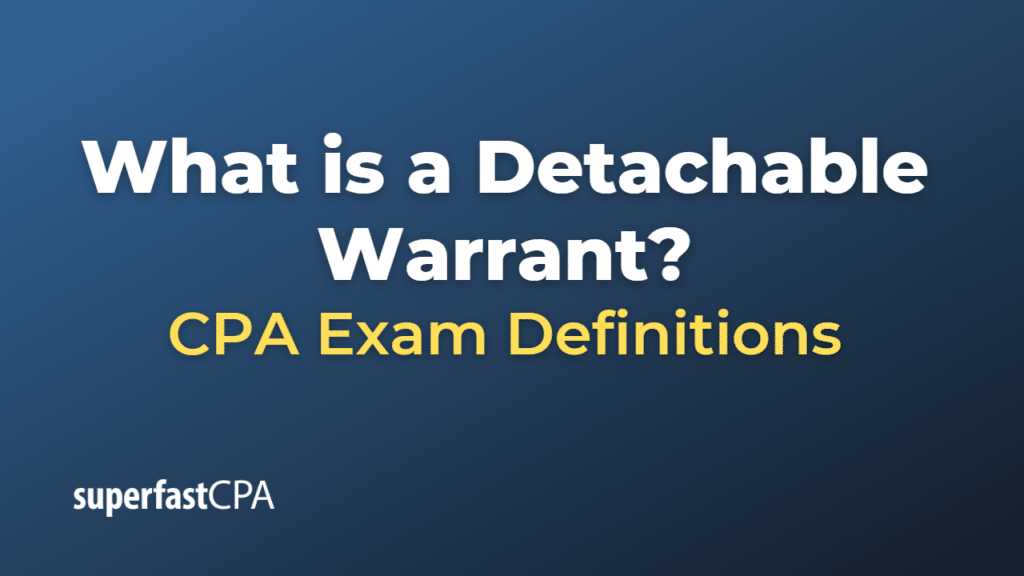Detachable Warrant
A detachable warrant is a type of financial instrument often issued with bonds or preferred stock. The warrant gives the holder the right, but not the obligation, to purchase a certain amount of common shares at a stated price, which is usually higher than the current market price at the time of issue.
What makes the warrant “detachable” is that it can be separated from the bond or preferred stock and traded independently. This feature provides additional flexibility for the investor. For example, if the investor believes the company’s common stock will increase in value, they may decide to exercise the warrant and buy the shares. Alternatively, if they believe there’s a market for the warrants themselves, they may decide to sell the warrants without affecting their bond or preferred stock investment.
From the issuer’s perspective, detachable warrants can make their bonds or preferred shares more attractive to investors. This can be especially useful for newer or less-established companies that might have trouble attracting investors otherwise. However, if many investors exercise their warrants, the company could potentially face share dilution, which means each existing share represents a smaller ownership in the company.
Example of a Detachable Warrant
Let’s consider a simple example of a detachable warrant:
Suppose a company, let’s call it Company ABC, decides to issue bonds to raise capital. To make the bonds more appealing, ABC decides to issue each bond with a detachable warrant. Each bond is sold for $1,000, and each warrant gives the bondholder the right to purchase 20 shares of ABC’s common stock at a strike price of $50 per share. At the time of the bond issue, ABC’s shares are trading at $40.
Now, imagine you are an investor who decides to buy one of ABC’s bonds. Along with the bond, you receive the detachable warrant. A few years later, ABC’s stock is doing well and trading at $60 per share. You decide to exercise your warrant and buy 20 shares of ABC at the $50 strike price, which costs you $1,000. You could then sell these shares at the current market price for a total of $1,200 ($60 * 20 shares), earning a $200 profit (ignoring any transaction costs).
Alternatively, you might decide to sell the warrant itself if there’s a market for it. As the stock price has risen above the strike price, the warrant will have gained value and you could potentially sell it for a profit.
Meanwhile, you still hold the bond from ABC and will continue to receive any interest payments due until the bond’s maturity. In this way, the detachable warrant provided an additional avenue for potential profit beyond the regular interest payments from the bond.
Again, this is a simplified example. In reality, the decision to exercise a warrant or trade the warrant itself would involve careful consideration of various factors, including market conditions, the performance of the issuing company, and the investor’s financial goals and risk tolerance.













